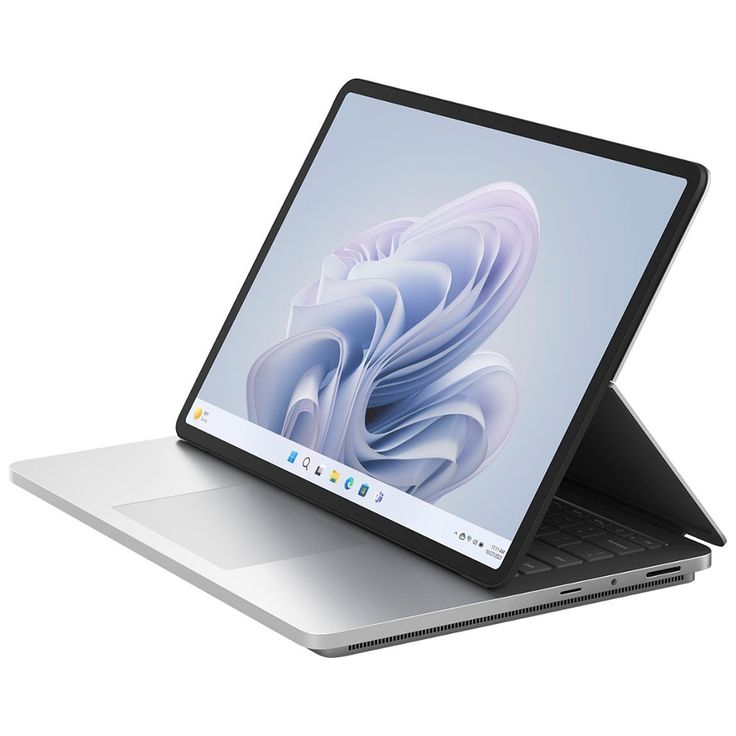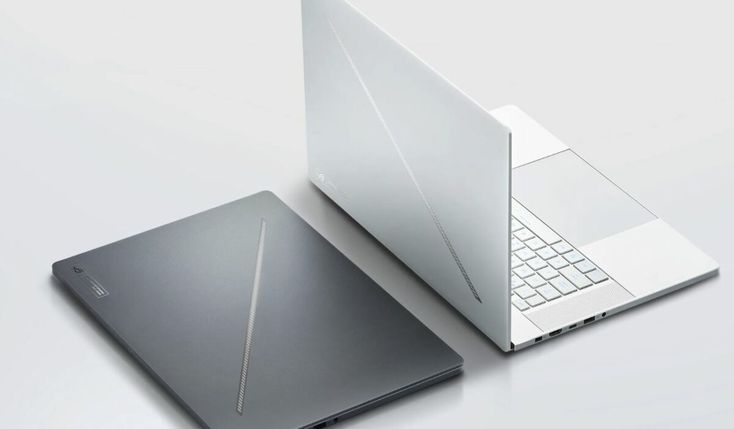The Ultimate Guide to Choosing the Best Computer for Podcasting
Podcasting is a dynamic and exciting medium that has grown exponentially over the past few years. Whether you’re starting a podcast as a hobby or planning to turn it into a professional venture, having the right equipment is essential. Among the most crucial pieces of podcasting equipment is the computer you’ll use for recording, editing, and producing your episodes. In this guide, we’ll walk you through everything you need to know when choosing the best computer for podcasting.
Why Choosing the Right Computer for Podcasting is Crucial
Podcasting involves various tasks that require a computer with enough power and capabilities to handle them efficiently. From recording clean audio to editing multiple tracks, adding sound effects, mixing, and producing the final product, your computer plays a central role in the podcasting process.
To avoid technical glitches and a sluggish workflow, you need a computer with the following features:
- Sufficient processing power (CPU)
- Adequate RAM (memory)
- Fast storage (SSD)
- Compatibility with podcasting software
- Connectivity options for audio equipment
In this post, we’ll break down the best computers for podcasting based on these essential factors.
1. Key Considerations for Choosing a Computer for Podcasting
Before diving into specific computer models, let’s first cover the key features you should consider when selecting a computer for podcasting.
- Processor (CPU)
Your computer’s processor is the heart of any audio or video production setup. It determines how fast your computer can process data, which is especially important when dealing with high-quality audio files and multi-track recordings. For podcasting, a multi-core processor is a must.
- Intel Core i7 or i9 (10th generation or newer) and AMD Ryzen 7 or 9 processors are highly recommended. These processors offer powerful performance for handling intense audio editing tasks, without lag or crashing.
For podcasting, a quad-core processor or better will allow you to run your podcasting software and other background applications without any noticeable slowdowns.
- RAM (Memory)
RAM is crucial for multitasking and running resource-intensive podcasting software smoothly. When editing multiple audio tracks and handling large podcast files, your computer needs enough memory to manage these tasks efficiently.
- 16 GB of RAM is the standard minimum for podcasting. However, if you work with more complex audio projects or plan to run multiple software simultaneously (e.g., audio recording, video editing, and streaming apps), 32 GB of RAM is recommended.
More RAM allows you to load and edit large audio files without experiencing delays, crashes, or reduced system performance.
- Storage (SSD vs. HDD)
For podcasting, fast storage is critical for both speed and capacity. Solid-State Drives (SSD) are faster than traditional Hard Disk Drives (HDD), providing quicker read/write speeds that help you edit and access your files more efficiently.
- A minimum of 512 GB SSD is recommended for podcasting, but ideally, you should aim for 1 TB or higher if you plan to store many episodes, backups, and assets such as sound effects and music tracks.
When it comes to storage, you also need to consider backup drives. Podcasting files can take up a lot of space, and losing valuable content could be disastrous. So, having an external SSD or cloud storage for backups is always a smart move.
- Graphics (GPU)
While podcasting primarily involves audio work, some podcasters also record video or use visual assets during their podcasts. In these cases, a dedicated graphics card (GPU) might be necessary.
- NVIDIA GTX or RTX series cards and AMD Radeon cards are great choices if you’re considering adding video production to your podcasting efforts. For most purely audio-based podcasts, however, a dedicated GPU isn’t necessary.
- Connectivity Options
When podcasting, you will need to connect multiple pieces of equipment such as microphones, headphones, and audio interfaces. Thus, having multiple USB ports (preferably USB 3.0 or higher) is essential. Look for computers with plenty of USB-A and USB-C ports for easy connection to your gear.
2. Best Computers for Podcasting
Here are some of the top computers that will give you the best performance, stability, and speed for podcasting.
1. Apple MacBook Pro (16-inch, M1 Pro or M1 Max)

Why It’s Great for Podcasting:
- Processor: Apple M1 Pro or M1 Max chip
- RAM: 16 GB (upgradeable to 64 GB)
- Storage: 512 GB SSD (upgradeable to 8 TB)
- Display: 16-inch Retina Display
- Ports: 3x USB-C Thunderbolt 4, HDMI, SDXC card slot
The MacBook Pro 16-inch with the Apple M1 Pro or M1 Max chip is one of the best options for podcasters who want top-notch performance. The M1 chip has revolutionized performance, offering excellent multitasking and processing speeds while consuming less power.
Apple’s macOS is also highly optimized for audio production, making it compatible with a variety of podcasting software such as GarageBand, Logic Pro X, and Adobe Audition. The MacBook Pro has a high-quality microphone array, which is also a great feature for on-the-go recording.
Pros:
- Exceptional audio processing power
- Excellent battery life (up to 20 hours)
- Great for video podcasting and editing
- High-quality display for visual work
Cons:
- Expensive
- Limited port options
2. Dell XPS 15

Why It’s Great for Podcasting:
- Processor: Intel Core i7 or i9 (10th/11th Gen)
- RAM: 16 GB (upgradeable to 64 GB)
- Storage: 512 GB SSD (upgradeable to 1 TB)
- Display: 15.6-inch OLED 4K display
- Ports: USB-C, USB-A, HDMI, SD card reader
The Dell XPS 15 is a powerhouse for podcasting. It’s equipped with a powerful Intel processor and plenty of RAM, which allows you to work on multiple tracks in audio editing software without slowing down. The 4K OLED display is fantastic if you’re working with video content as well.
Dell’s XPS series is renowned for its premium build quality, long battery life, and excellent performance. Whether you’re recording, editing, or streaming, the XPS 15 will handle it with ease.
Pros:
- Powerful CPU and RAM
- Stunning 4K OLED display
- Long battery life
Cons:
- Higher price range
- Heavy and bulky
3. Apple iMac 24-inch (M1)

Why It’s Great for Podcasting:
- Processor: Apple M1 chip
- RAM: 8 GB (upgradeable to 16 GB)
- Storage: 256 GB or 512 GB SSD
- Display: 24-inch Retina display
The iMac 24-inch with the Apple M1 chip is an excellent desktop choice for podcasting. It’s compact yet powerful, with excellent performance thanks to the M1 chip. The 24-inch Retina display offers bright colors and crisp resolution, making it perfect for visual content or video podcasting.
This iMac is ideal for podcasters who need a stationary setup and don’t require portability. Its design is sleek, and macOS provides seamless integration with podcasting software.
Pros:
- Gorgeous Retina display
- M1 chip’s efficiency and power
- Perfect for video podcasting
Cons:
- Not as portable as a laptop
- Limited RAM upgradeability
4. Microsoft Surface Laptop 4

Why It’s Great for Podcasting:
- Processor: Intel Core i7 or i5 (11th Gen)
- RAM: 16 GB
- Storage: 512 GB SSD
- Display: 13.5-inch or 15-inch PixelSense display
The Surface Laptop 4 offers a sleek and portable design for podcasters on the go. It’s equipped with Intel’s latest processors and comes with 16 GB of RAM, which is great for podcasting. Whether you’re editing audio or working on a script, the PixelSense display offers stunning visuals.
Pros:
- Lightweight and portable
- Long battery life
- Excellent keyboard for typing scripts
Cons:
- Limited ports
- No external GPU option
5. ASUS ROG Zephyrus G14

Why It’s Great for Podcasting:
- Processor: AMD Ryzen 9 5900HS
- RAM: 16 GB or 32 GB
- Storage: 512 GB or 1 TB SSD
- Display: 14-inch 144Hz display
For those who want to do gaming, video editing, or podcasting on the same machine, the ASUS ROG Zephyrus G14 is a great option. It’s powerful, portable, and boasts excellent cooling systems. Its Ryzen 9 processor and 16 GB RAM ensure that even demanding tasks like audio editing or video production run smoothly.
Pros:
- High-end performance
- Compact and portable
- Ideal for multi-tasking (gaming, podcasting, editing)
Cons:
- Gaming-oriented, not tailored specifically for podcasting
- Battery life is shorter under heavy loads
Other Considerations for Podcasting
When choosing the best computer for podcasting, keep in mind other essential podcasting gear:
- Microphone: Look for a high-quality dynamic microphone (e.g., Shure SM7B) or condenser microphone (e.g., Audio-Technica AT2020).
- Audio Interface: A solid interface, like the Focusrite Scarlett 2i2, will ensure clear audio input.
- Headphones: Closed-back headphones (e.g., Audio-Technica ATH-M50x) will allow you to monitor your audio while recording and editing.
Conclusion
Choosing the best computer for podcasting depends on your specific needs, budget, and workflow preferences. Whether you prefer a portable laptop like the MacBook Pro or Surface Laptop, or a powerful desktop like the iMac 24-inch, there’s a computer for every type of podcaster. Be sure to consider the processor, RAM, storage, and ports when making your decision to ensure smooth production and editing of your podcast episodes.
By selecting the right computer and pairing it with high-quality audio equipment, you’ll be well on your way to creating professional-quality podcasts that your audience will love.
